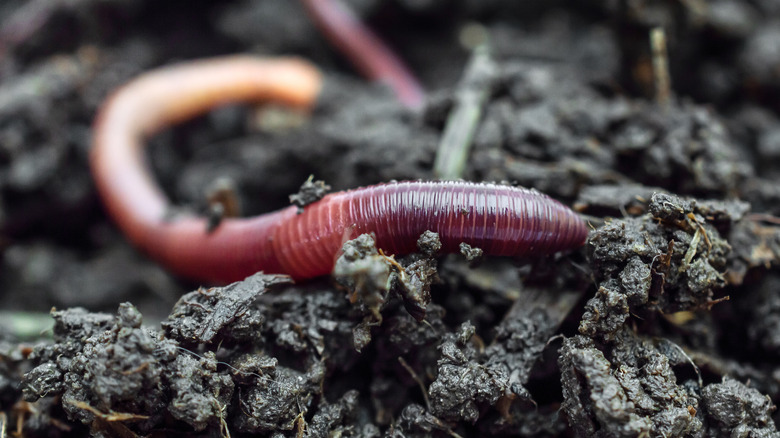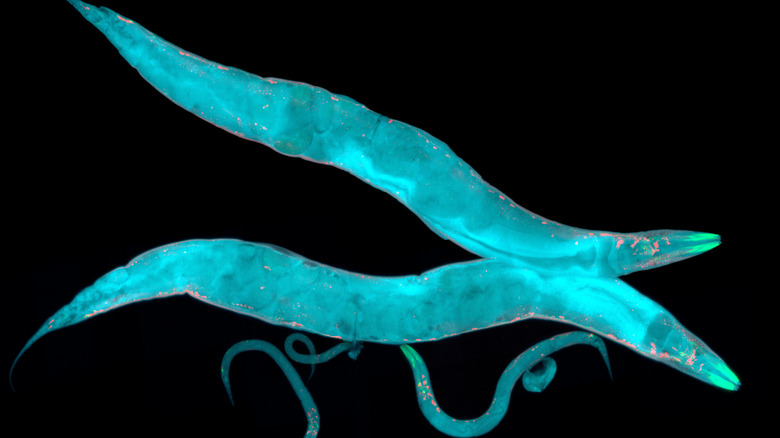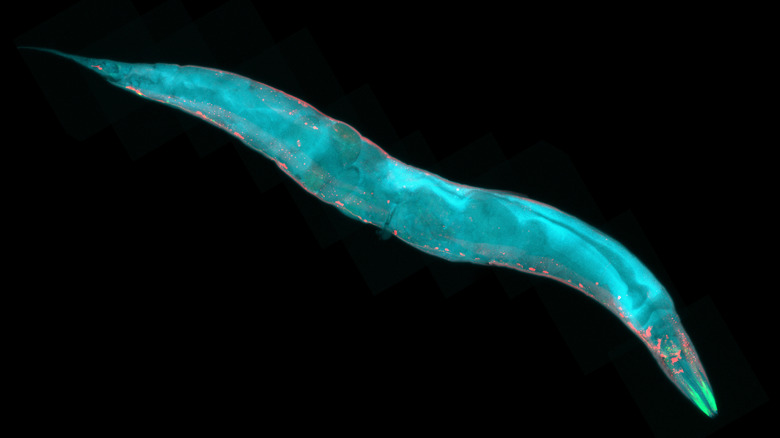According To A University Of Oregon Study, Worms Get The Munchies
It's scientifically proven that marijuana makes some people feel hungry, according to PBS NewsHour. Now, researchers at the University of Oregon have found that the same effect occurs in another unlikely organism: a small nematode worm called Caenorhabditis elegans, CNN reports. The "munchie" effect cannabinoids can have on our system had previously been shown to take place in other mammals, like us. The U of O study, though, is the first to show a similar reaction to cannabinoids in a completely different class of animal.
According to U of O neuroscience professor Shawn Lockery, who co-authored the study on C. elegans' cannabinoid-induced feeding habits, known scientifically as hedonic feeding (per CNN): "Our findings help us to understand more fully our place in the animal universe. It shows that in at least one respect, the decisions we make are influenced by factors that even a worm can understand." The reason the effect is thought to happen in both humans and worms relates to the naturally-occurring endocannabinoid system. Lockery and his team's results were published in the scientific journal Current Biology.
There are cannabinoid receptors in our brains
THC, or the psychoactive cannabinoid in marijuana that makes some feel relaxed and blissful when they smoke or ingest it, has an effect on our body because it activates cannabinoid receptors in our brains and elsewhere in our bodies and nervous system, The Guardian explains. These receptors are also activated by naturally-occurring cannabinoids produced in our system called endocannabinoids. Endocannabinoids are involved in all sorts of things related to our moods and behaviors, and when THC is thrown into the mix, the activation of cannabinoid receptors can make us feel extra hungry.
With the same results now found in nematode worms, the gene that gives humans and other mammals cannabinoid receptors in our brains is proven to also be present in a wide range of organisms, like tiny worms. This discovery could have profound implications for human health. According to Shawn Lockery (via The Guardian), "The fact that the human cannabinoid receptor gene is functional in C. elegans food-choice experiments sets the stage for rapid and inexpensive screening for drugs that target a wide variety of proteins involved in cannabinoid signaling and metabolism."
The worms were soaked in a cannabinoid liquid
To reach their conclusions, Shawn Lockery and his team dunked nematode worms in a cannabinoid liquid before presenting them with their different food choices in a kind of maze. Unlike humans, who may crush a bag of Doritos after ingesting cannabis, these little worms feed on bacteria. They were also genetically modified so that certain neurons glowed with cannabinoids present, proving the influence of the substance on their system.
The worms didn't head straight for junk food, but the study did show they preferred "nutritionally superior food," per Current Biology. They also consumed more than they might otherwise eat. It's not known if the worms felt something like a "high" after their cannabinoid bath, though, like humans after marijuana is consumed. While under the influence of cannabinoids, olfactory neurons in the worms were also shown to be more sensitive to foods they preferred. According to Lockery (via The Guardian): "We suggest that this increase in existing preference is analogous to eating more of the foods you would crave anyway. It's like choosing pizza versus oatmeal."


